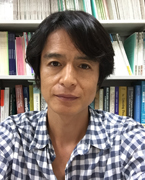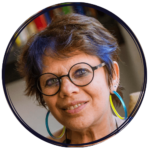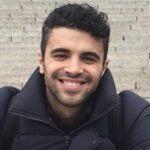Since 2015 a number of clinicians and researchers led by the developer of AEDP and AEDP Institute Founder and Director Diana Fosha have been involved in an innovative, breakthrough research project that has demonstrated the effectiveness of AEDP™ psychotherapy which is now officially designated as Evidence Supported.
The results of their work are reflected in empirical research on AEDP. The first paper documenting the effectiveness of AEDP was published in 2020 in the APA Journal Psychotherapy (Iwakabe, Edlin, Fosha, Gretton, Joseph, Nunninck, Nakamura & Thoma, 2020) and the second paper, which documents the long-term effectiveness of AEDP psychotherapy and the maintenance of gains after the termination of therapy, was also published in the APA Journal Psychotherapy in 2022 (Iwakabe S, Edlin J, Fosha D, Thoma NC, Gretton H, Joseph AJ, Nakamura K. The long-term outcome of accelerated experiential dynamic psychotherapy: 6- and 12-month follow-up results. 2022).
Learn More
aedpresearch.com and team conversation video
New clients are still being welcomed into the research project. Prospective research patients and therapists can learn more on our research website here: aedpresearch.com.
AEDP Certified therapists are invited to learn more and get involved in the vibrant research community that provides the 16-session AEDP treatments that are inherent to the project. Some of these clinicians meet regularly for group supervision where they support each other in what is in some ways a different way of doing AEDP; and in other ways the 16-session ‘research treatment’ is the same AEDP they know and love in their regular AEDP practice, only more so. To learn more, watch this video of a conversation among a handful of research clinicians, recorded in October 2023.
AEDP Research Project Team
Shigeru Iwakabe, PhD, Director of AEDP Research, Co-Chair of AEDP Research Committee
Shigeru Iwakabe, Ph.D., is an associate professor of Developmental Clinical Psychology at Ochanomizu University in Tokyo, Japan. He received his PhD at McGill University in Montreal, Canada in 2001. Shigeru conducts psychotherapy research on client emotional processes from an integrative perspective with a particular interest in the transformational phenomena in AEDP.
Shigeru is a natural fit with AEDP both as a researcher and a clinician. Since becoming more deeply involved with AEDP in 2011, Shigeru has undertaken several research projects studying the affective emotional processes in AEDP with his colleague, Nuno Conceicao from Portugal. His research interests include: training and professional development in psychotherapy, case study research methods, psychotherapy integration, and cultural and social issues related to the practice of psychotherapy. His many publications include:
- Iwakabe, S. & Conceicao, N. (in press) Metatherapeutic processing as a change-based therapeutic immediacy task: Building a initial process model using a modified task-analytic research strategy. Journal of Psychotherapy Integration.
- Iwakabe, S., Fukushima, T., & Ito, E. (2013). Introduction to clinical psychology: Traversing various approaches. [in Japanese] Tokyo, Japan: Yuhikaku.
- Iwakabe, S. (2010). The process of qualitative research in clinical psychology. [in Japanese] Tokyo, Japan: Iwasaki Academic Publishing.
- Iwakabe, S. (2009). Research methods in psychotherapy process research. [in Japanese]Tokyo, Japan: Shinyo-sha.
- Iwakabe, S. (2008). Clinical explorations of therapeutic failures: How therapists face, work through, and frow from their mistakes. [in Japanese] Tokyo, Japan: Kongo Publishing.
Shigeru also practices in the university clinic and is interested in cultural issues associated with practicing AEDP in Japan. He has completed Level 2 AEDP training.
Diana Fosha, PhD, Co-Director of AEDP Research
Diana Fosha, PhD, the developer of AEDP psychotherapy, is also Co-Director, with Shigeru Iwakabe, PhD, and Jennifer Edlin, MFT, of AEDP Research. For the last 20 years, Diana has been active in promoting a scientific basis for the AEDP model’s healing-oriented experiential therapy. The AEDP transformational theory, which elaborates the basis for putting positive neuroplasticity into clinical action, is similarly receiving increasing recognition. Drawing on affective neuroscience, attachment theory, mother-infant developmental research, and research documenting the undreamed-of plasticity in the adult brain, AEDP has developed an experiential clinical practice which reflects the integration of science, research and practice in psychotherapy.
Diana has always been passionate about phenomenology, meticulously examining the process of therapy by repeatedly watching, tracking, naming and defining micro change processes. This is a qualitative phenomenological research of its own kind, which has resulted in the model’s extensive and original phenomenology of the transformational process, and the close and detailed description of transformational affects, e.g., the healing affects, the tremulous affects, and core state. These concepts are closely aligned to and grounded in observational clinical data and they turn out to be universal: their experiential validity is evident in that the subjective experience of therapists from many cultures across the globe — Brazil, China, Israel, Japan, Jordan, Sweden, to name just a few– resonate with these phenomena.
Since 2015, Diana Fosha’s deep commitment to research has extended to formal empirical research into AEDP clinical outcomes and process. This has involved supporting the development of the AEDP PRN (Practice Research Network), a community of researchers and AEDP clinicians collaborating on AEDP clinical research.
From these research activities, in collaboration with her colleagues, Diana has been evolving the AEDP basic research stance: Like AEDP itself, research into the model’s processes and outcomes is a collaborative creative endeavour amongst researchers, clinicians, and patients, based on mutual respect and appreciation, highest rigor and precision, open investigative attitude, and finally, the shared and generative joy of discovery.
Their work is reflected in empirical research on AEDP. The first paper documenting the effectiveness of AEDP was published in 2020 in the APA Journal Psychotherapy (Iwakabe, Edlin, Fosha, Gretton, Joseph, Nunninck, Nakamura & Thoma, 2020) and the second paper, which documents the long-term effectiveness of AEDP and the maintenance of gains after the termination of therapy, is being submitted for publication.
Andrew Joseph, EdM, MA, Research Associate
Andrew Joseph, EdM, MA, is a psychotherapist in private practice in New York City and Vancouver, BC. He received his undergraduate degree in psychology from Trinity Western University in Langley, BC, and an MA and EdM in psychological counseling from Teachers College, Columbia University in New York. While in graduate school, Andrew was introduced to AEDP by his colleague, Hillary McBride, who sent him Natasha Prenn’s 2009 paper “I second that emotion!” Andrew was captivated by this model of treatment that involved the therapist’s heart—which instantly felt congruent with Andrew’s Egyptian roots. He then found himself in AEDP Senior Faculty member Gil Tunnell’s Marriage and Family class at Columbia University, where he learned more about AEDP. Andrew was eventually recruited by Gil Tunnell to work with Diana Fosha as an assistant. Diana introduced him to her co-leaders of the AEDP Research Project who invited Andrew to join the AEDP Research team as a research assistant in 2018. Andrew was promoted to Research Associate in 2021.
Andrew‘s clinical training started at Kip Therapy, where he practiced under the supervision of AEDP therapist Negar Morshedian, and then upon graduation, in private practice under Diana Fosha’s supervision.
In 2020, Andrew was one of the authors of the Research Project’s first outcome study, published in the APA Journal Psychotherapy. Later in 2020, he co-authored a paper, which has been widely read, published in Counseling Psychology Quarterly: “Clinical recommendations for psychotherapists working during the coronavirus (COVID-19) pandemic through the lens of AEDP.” Andrew has presented his work in 2021 at both AEDP Immersion and at the Canadian Counselling and Psychotherapy Association’s Annual Conference.
Before becoming a psychotherapist, Andrew built a menswear label, and his original clothing designs were featured in The Wall Street Journal, Vogue, and GQ. He continues to use his curious and creative mind both clinically and academically. In his spare time, he enjoys snowboarding and spending time with his family and friends.



